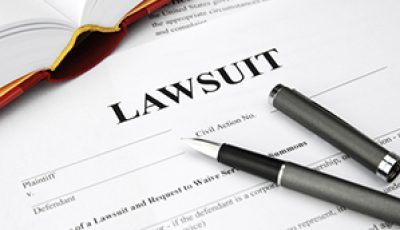Judge declines to issue gag order in Taylor murder case, but closes courtroom for part of hearing

Courtney Taylor is charged with three counts of murder in the death of her husband and two children.
A Williamsburg woman, who allegedly killed her husband and her two teenager daughters while they slept in January, has pleaded not guilty to her charges.
Courtney Taylor, 41, appeared in Whitley Circuit Court Monday morning before Special Judge Jeffrey Burdette for her arraignment.
Unlike her prior court appearance where she was wheeled into the courtroom in a wheelchair, Courtney Taylor walked into the courtroom Monday morning wearing a yellow prison jumpsuit.
Burdette introduced himself to the defendant, had her raise her right hand and state her name, date of birth and the last four digits of her social security number.
Taylor’s attorney, public advocate Roger Gibbs, then waived further formal arraignment and entered a not guilty plea on her behalf to her three capital murder charges and two charges of first-degree wanton endangerment.
After being informed by Commonwealth’s Attorney Allen Trimble that there was a lot of evidence submitted to the Kentucky State Police Crime Lab, Burdette agreed to postpone the next pre-trial conference in the case until June 5 rather than schedule it in May.
During the hearing, Gibbs asked Burdette to issue a gag order in the case, which would preclude attorneys, police officers and other officials from making any comments in the case to the public or the press.
Gibbs noted that while the prosecutor’s office hasn’t made any comments about the case, the sheriff’s department has.
Trimble noted that there is a lot of public interest in the case, and many of the comments about it are being made by people not affiliated with the case on platforms, such as social media.
“I’m not sure how effective a gag order would be,” he noted.
Burdette said that he understands the need to strike a balance between ensuring the defendant’s rights and the first amendment and the public’s right to know.
Burdette declined to grant the gag order in the case, but he did encourage the parties to be careful about what they said.
Burdette then moved the hearing into a smaller courtroom and closed it to the public in order to hear an exparte motion that Gibbs had filed in the case.
Exparte motions are typically filed when the defense is asking for things, such as funds to hire expert witnesses. In order to justify to the judge the reasons for seeking those funds, defense attorneys will often discuss factors, such as trial strategy, in their rationale for pursuing the funds.
Only Taylor, Gibbs, the judge, court security officials and the circuit clerk’s office were allowed to be present for the hearing. Neither prosecutors, nor the victim’s family were allowed in the courtroom for the exparte hearing.
The closed hearing is believed to have lasted for about 10 minutes. The outcome of it is not known.
Gibbs declined to make any comments about the case as he left the judicial center Monday morning.
On March 20, a Whitley County Grand Jury indicted Courtney Taylor on three counts of capital murder in the Jan. 13 shooting deaths of her husband, Larry Taylor, 56, and their two daughters, Jessie Taylor, 18, and Jolee Taylor, 13.
In addition, the grand jury also indicted Courtney Taylor on two counts of first-degree wanton endangerment for pointing a 9mm handgun at Whitley County Sheriff’s Deputy Jonas Saunders and Sgt. James Fox, who responded to her residence to investigate.
Saunders then shot her twice with his service weapon. Courtney Taylor was in the hospital for about two weeks before being released and taken to the Whitley County Detention Center.
She was later transferred to the Kentucky Correctional Institution for Women at Pee Wee Valley, which is a women’s prison with a hospital unit.
She is being held in lieu of a $1 million bond. No mention about bond was made during Monday’s hearing.
So far prosecutors have not indicated whether they will pursue the death penalty in the case.
Trimble said after court that he plans to decide within the next two weeks whether to seek the death penalty, and will file paperwork to that extent in the case.








